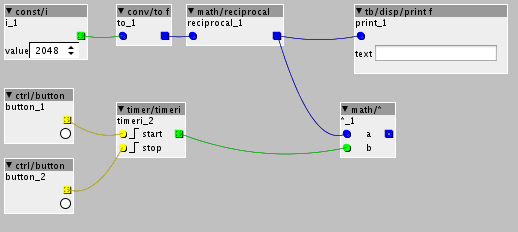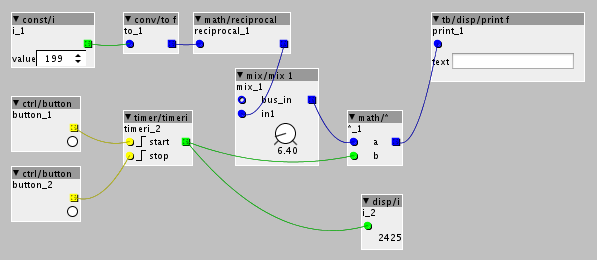Is there any way to delay a stream of pulses?
I would be so excited if there was an object like timer/delayedpulse that didn't cancel an old trigger if a new trigger was received before the delay period.
For example, I'd like to delay a series of four pulses, 100 ms apart, a total of 600 ms. Is there a way to do this that doesn't involve chaining twelve 50 ms timer/delayedpulse objects?


